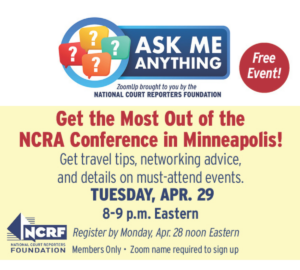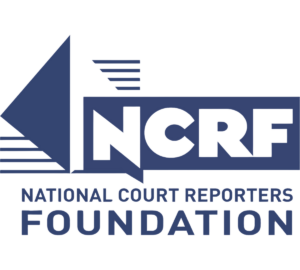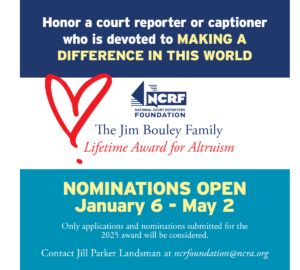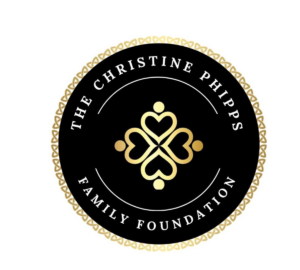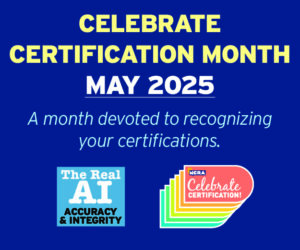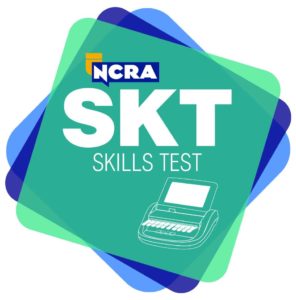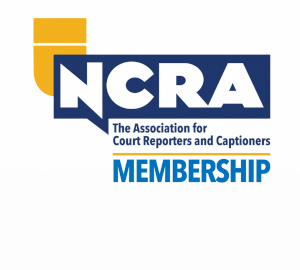The Smithsonian Transcription Center and staff from the National Museum of African American History and Culture in Washington, D.C., hosted a virtual Transcribe-a-Thon on Sunday, Feb 6. The event was open to stenographers, captioners, CART providers, and students and was part of an ongoing project to transcribe more than 1.5 million original documents from the post-Civil War era.
NCRF Angels Gatherer Committee Member Margary Rogers, RPR, CRI, an official court reporter, captioner, and CART provider in Washington, D.C., and NCRA member Juanita Price, RPR, an official and CART captioner in Gainesville, Va., invited their colleagues through social media and local efforts to join their event: “Let’s POP (Promote Our Profession) Thru Service” as part of NCRA’s Court Reporting & Captioning Week.
“The Smithsonian and National Museum of African American History and Culture are so excited that we, stenographers and students, will help them transcribe the Freedmen’s Bureau records for them,” Rogers said. “I thank the Smithsonian for setting up the Zoom link and creating our flyer. I also would like to thank NCRF for blessing, supporting, and putting their stamp of approval on this project.”
The Freedmen’s Bureau, formally known as the United States Bureau of Refugees, Freedmen, and Abandoned Lands, was created by Congress in 1865 to “assist in the political and social reconstruction of post-war Southern states and to help formerly enslaved people make the transition from slavery to freedom and citizenship,” according to the museum’s promotional materials. The Bureau has created millions of records containing the names of formerly enslaved individuals and Southern white refugees. In 2016 the Smithsonian began its largest crowdsourcing project ever to begin transcribing these records.
NCRA President Debbie Dibble, RDR, CRR, CRC, welcomed attendees, emphasizing the importance of sharing the value of the court reporting and captioning professions with people of all ages anywhere they meet them. She urged court reporters to remember to follow up with interested people with whom they have touted the greatness of the profession.
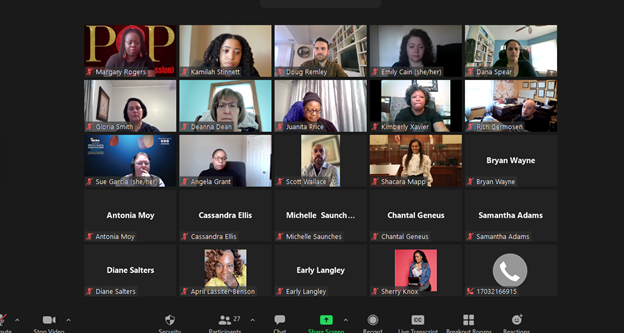
Following the event, Dibble noted on Facebook: “I had no idea what to expect! I was incapacitated with amazement at the quality and depth of history in these documents. One of the most life-changing opportunities I’ve been given the privilege to participate in. One of the most creative and inventive activities I’ve ever seen. Watching reporters work together to decipher centuries-old documents and writings to preserve a legacy … priceless!”
Commending attendees for helping to preserve African American history during this event was NCRF Chair Early Langley, RMR, a freelance court reporter from Danville, Calif. “Back in the early 2000s,” she said, “I started reporting depositions of plaintiffs afflicted with asbestos-related disease, mesothelioma, lung cancer, asbestosis. Depo after depo, a pattern emerged. These men were African Americans who pursued the dream of a better life and a better job in the California shipyards. They left their families from the South, some not knowing their ancestors and family history. The shipyards put them in the hulls of ships, the dirtiest of all work at the ship’s bottom. No masks. No breathing protection amid asbestos-covered pipes. This African American generation left for better work well after the end of the Civil War, but the sting of racial discrimination had not gone.”
“Now with the Freedmen’s Bureau records,” she told attendees, “you can bring these histories to life. You are part of the largest crowdsourcing project ever undertaken by the Smithsonian. Transcribing these original documents will increase our understanding of the post-Civil War era and our knowledge of post-Emancipation times.”
“It is my pleasure and honor to celebrate how Margary has connected us all to the histories of many generations of African Americans,” Langley said.
The Transcription Center provided the platform where NCRA members were able to transcribe and review transcriptions from this collection in 10 Zoom breakout rooms. About 30 NCRA students and members collaborated in the event.
More information about the event and how members can register to transcribe can be found here.

